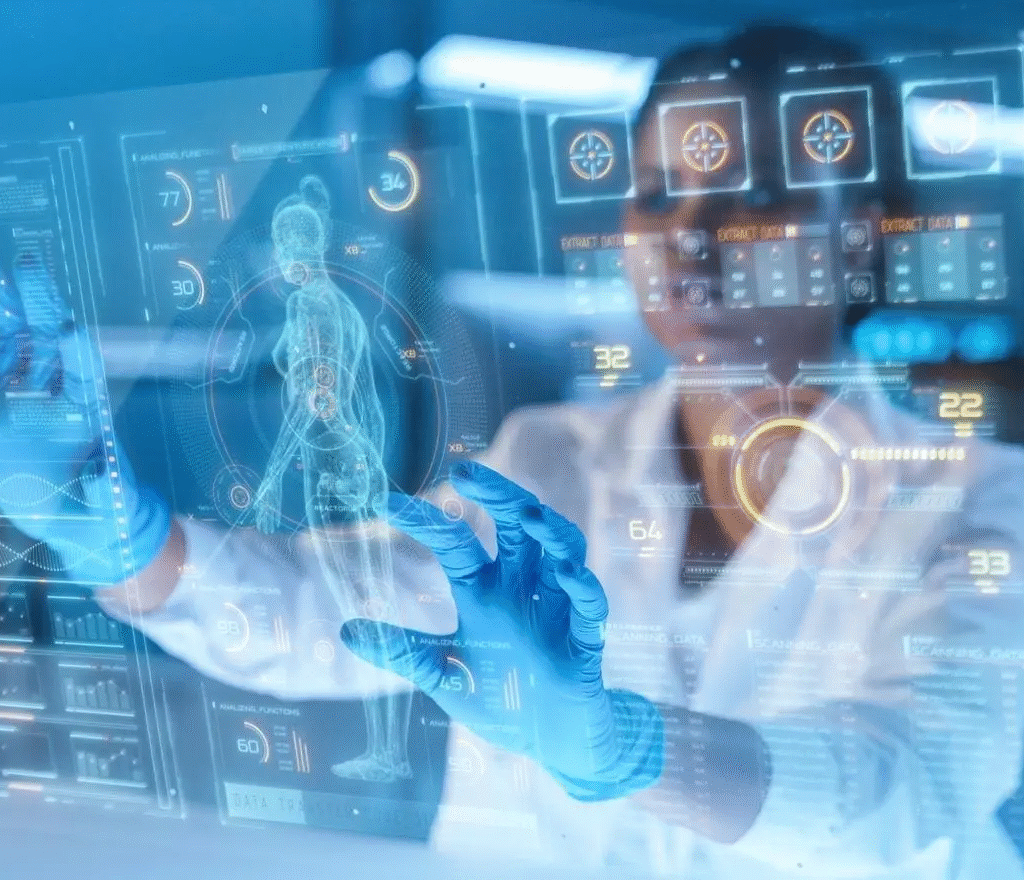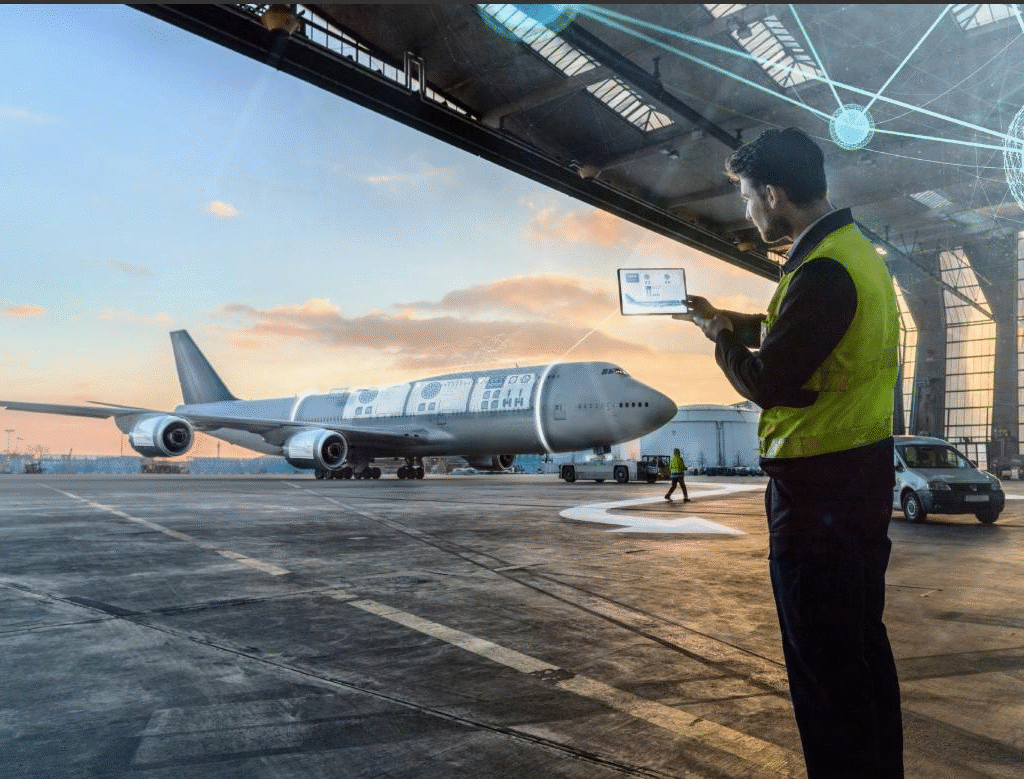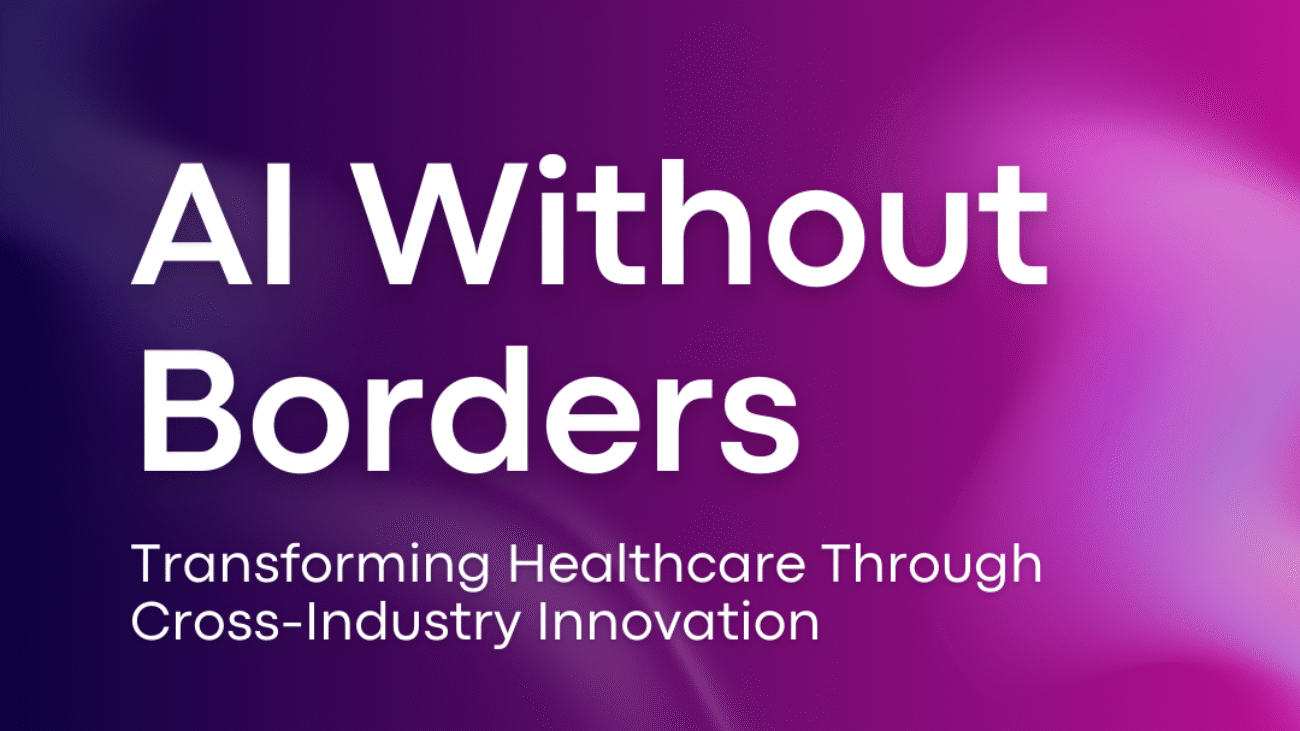Artificial Intelligence (AI) is transforming healthcare—but what if we’re still scratching the surface? While healthcare has made remarkable strides with AI in diagnostics, imaging, and patient monitoring, some of the most powerful lessons are emerging not from within, but from other industries.

To unlock AI’s full potential in medicine, it’s time to look beyond the hospital walls and learn from sectors like finance, aviation, retail, manufacturing, and logistics. These industries have long dealt with complexity, risk, and data overload—just like healthcare—but have often moved faster in adopting AI-driven systems. So what can healthcare learn?
1. Finance: Real-Time Risk Assessment & Fraud Detection
Lesson: Predictive Analytics for Risk Management

In finance, AI is used to analyze transactions in real time to detect fraud, assess credit risk, and automate decision-making. These systems process enormous datasets and adapt to new patterns continuously.
Healthcare Takeaway:
This approach could enhance real-time patient risk stratification, early detection of anomalies (like sepsis or stroke), and proactive intervention. Think of AI models that learn from a patient’s vitals and history to flag early warning signs—just like a credit card alert.
2. Aviation: Human-in-the-Loop Automation
Lesson: Safety through AI-Human Collaboration

The aviation industry is a gold standard for safety systems that combine AI with human oversight. Pilots work closely with AI-powered systems for navigation, diagnostics, and emergency responses.
Healthcare Takeaway:
In medicine, AI should augment, not replace, clinical judgment. Designing AI systems that collaborate with clinicians—flagging concerns, suggesting options, but always keeping humans in control—can increase both efficacy and trust.
3. Retail: Hyper-Personalization & Consumer Behavior Analysis
Lesson: Personalization through Data-Driven Insights
Retail giants use AI to analyze behavior and preferences to create hyper-personalized experiences—offering the right product at the right time.
Healthcare Takeaway:
Personalized medicine can be revolutionized with similar tools. By analyzing genetic, behavioral, and lifestyle data
4. Manufacturing: Predictive Maintenance & Process Optimization
Lesson: Systems Thinking and Efficiency
Manufacturers rely on AI to predict machinery failures before they occur and optimize production lines in real time.
Healthcare Takeaway:
Hospitals can use predictive tools to anticipate equipment failure, streamline supply chains, and optimize patient flow, especially in emergency departments. This could reduce downtime and delays in care.
5. Logistics: Dynamic Resource Allocation

Lesson: AI-Powered Scheduling and Supply Chain Resilience
In logistics, AI dynamically routes deliveries, allocates resources, and adapts to disruptions (like weather or traffic) in real time.
Healthcare Takeaway:
AI can help hospitals manage beds, staff schedules, inventory, and even emergency response logistics—especially during pandemics or surges. Smarter scheduling can reduce burnout and improve care delivery.
6. Cybersecurity: Continuous Learning and Threat Detection
Lesson: Adapting to New Threats with AI
Cybersecurity firms use AI to learn from attacks and adapt defenses on the fly, identifying previously unseen threats through behavior-based modeling.
Healthcare Takeaway:
With rising cyberattacks on healthcare institutions, AI can enhance security by detecting unusual data access patterns, flagging suspicious behavior, and automating threat response before damage is done.
7. Sports & Wearables: Continuous Performance Monitoring
Lesson: Proactive Health Tracking
In sports, AI processes wearable data to optimize athlete performance and prevent injury.
Healthcare Takeaway:
Wearables combined with AI can enable continuous health monitoring for patients with chronic diseases or post-op recovery—alerting doctors to changes before symptoms appear.
Breaking Silos: What Healthcare Needs Next
To fully benefit from AI, healthcare must:
- Foster cross-industry collaborations with tech and AI leaders from other sectors.
- Invest in data infrastructure that enables real-time learning and integration.
- Embrace human-centered design so AI supports, not overrides, clinicians.
- Build flexible regulations that protect patients while enabling innovation.
Conclusion
Healthcare doesn’t need to reinvent the wheel—it needs to adapt proven AI strategies from other sectors. When we think beyond borders, we begin to see healthcare not just as a late adopter, but as a field on the brink of a new, AI-powered frontier.
Created by Zain Malik | Blue Peaks Consulting

 Cart is empty
Cart is empty 
Add a Comment